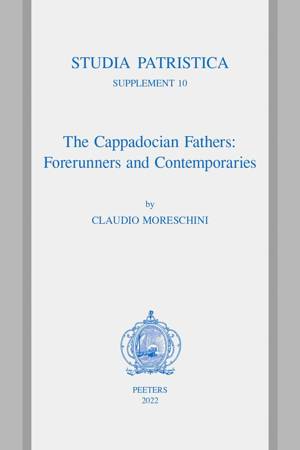
- Afhalen na 1 uur in een winkel met voorraad
- Gratis thuislevering in België vanaf € 30
- Ruim aanbod met 7 miljoen producten
- Afhalen na 1 uur in een winkel met voorraad
- Gratis thuislevering in België vanaf € 30
- Ruim aanbod met 7 miljoen producten
Zoeken
Omschrijving
This monograph considers not so much the moments, thoughts, speculations with which the so-called 'Cappadocian Fathers' agreed and proposed a unified doctrine, but the points and moments, the doctrines in which they disagreed. Thus, it is not a new book on the Cappadocian Fathers considered as a unity, which surely would have come to a huge dimension, but asks the question: Is it possible to speak of agreement and, at the same time, of differentiation between these Fathers? Is it useful to change, at least in part, an established opinion, that of the 'Cappadocian theology'? The examination of the various problems leads to an affirmative answer. Concordia discors might be the true sense. So far, studies have mostly focused on the religious aspects and have shown little or no interest in the Cappadocians' output as literature. Cultivated people with a background in paideia, which was the same as for non-Christian writers, these Fathers wished to have access to the literary forms that were most useful for their didactic activities (homilies), or also rhetorical use (epistolography or poetry): thus, literary activity should not be considered as extraneous to their speculative thought. Their interest in philosophy can be traced to their openness to pagan paideia, which had a long tradition in Christianity. Another question that arises is the need to clarify who exactly the 'Cappadocian Fathers' were. Naturally, Amphilochius, due to his relations with Basil and Gregory of Nazianzus, but as it is justified by the similarities of many doctrines and by his biography, also Evagrius Ponticus, even though his personal affairs and the end of his life place him more within Egyptian rather than Cappadocian monasticism. A sketch of the Cappadocian's Nachleben in the West, with a provisional edition of a Latin translation (6th century) of some Gregory of Nazianzus' homilies and Christological epistles concludes the volume.
Specificaties
Betrokkenen
- Auteur(s):
- Uitgeverij:
Inhoud
- Aantal bladzijden:
- 439
- Taal:
- Engels
- Reeks:
- Reeksnummer:
- nr. 10
Eigenschappen
- Productcode (EAN):
- 9789042945326
- Verschijningsdatum:
- 31/12/2022
- Uitvoering:
- Paperback
- Formaat:
- Trade paperback (VS)
- Afmetingen:
- 160 mm x 240 mm
- Gewicht:
- 127 g

Alleen bij Standaard Boekhandel
+ 240 punten op je klantenkaart van Standaard Boekhandel
Beoordelingen
We publiceren alleen reviews die voldoen aan de voorwaarden voor reviews. Bekijk onze voorwaarden voor reviews.











